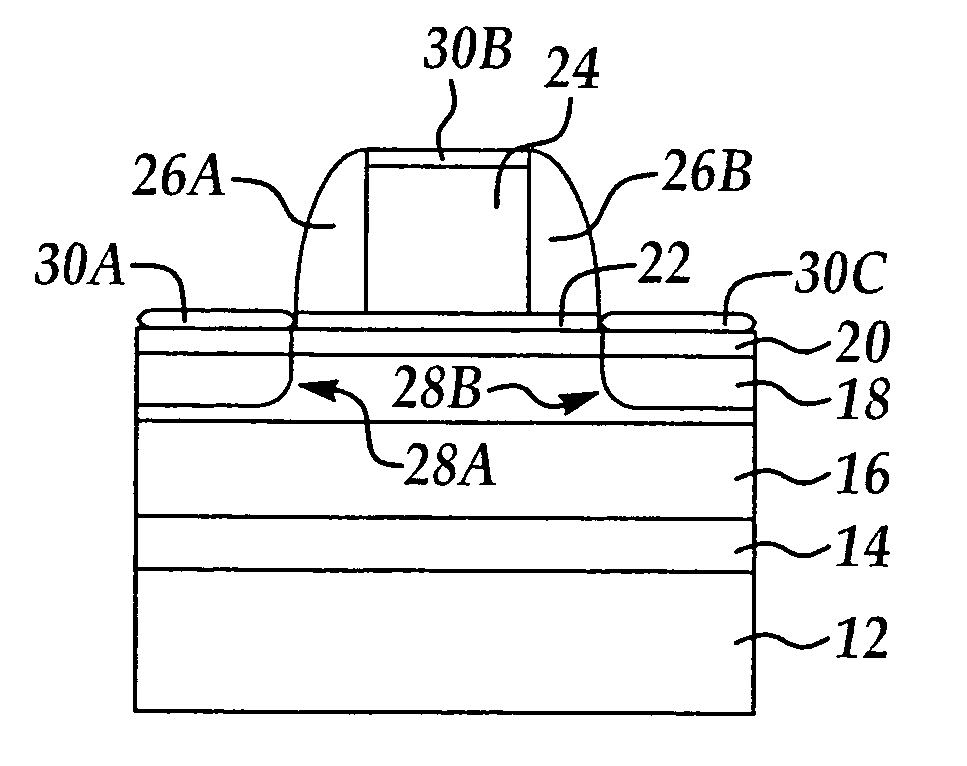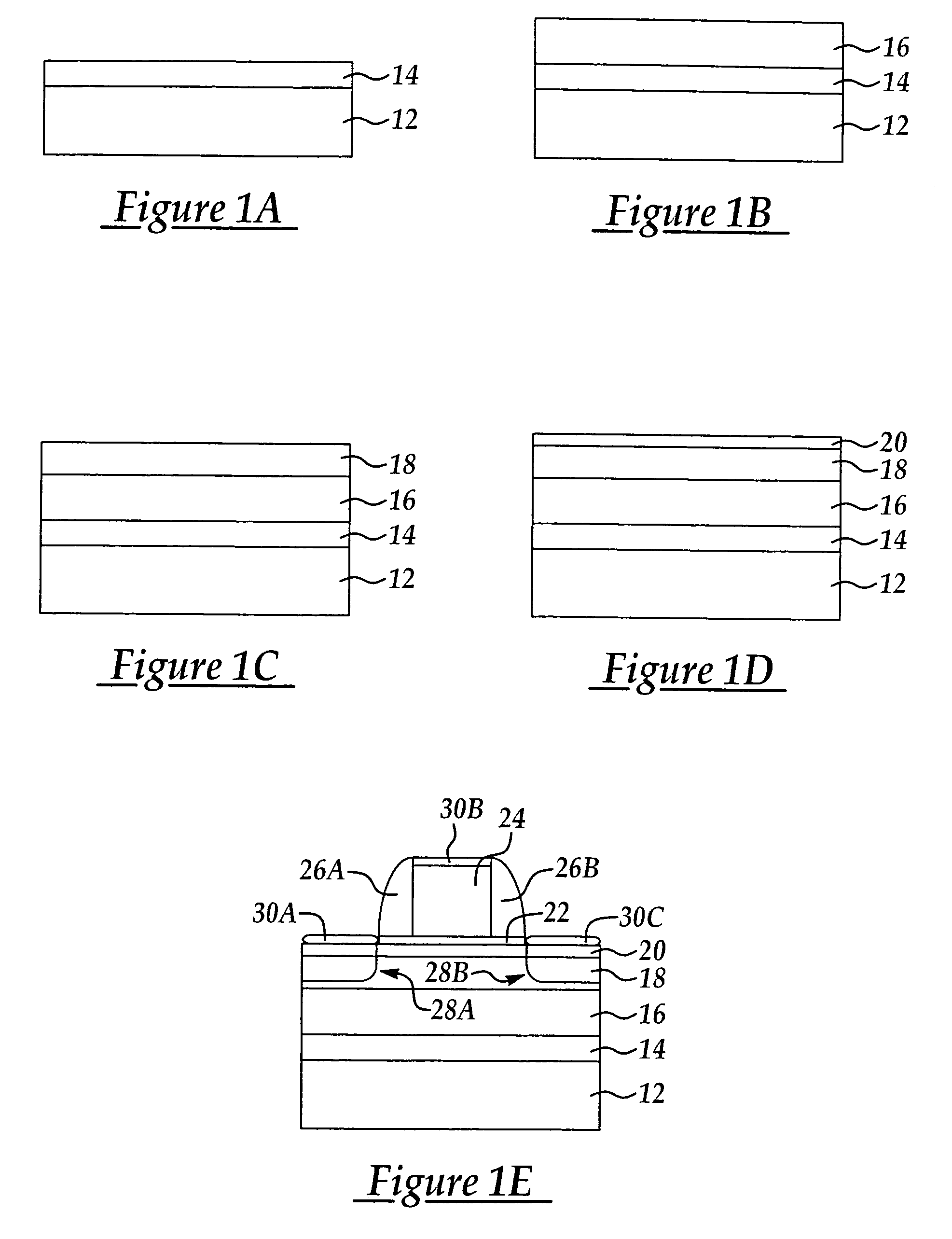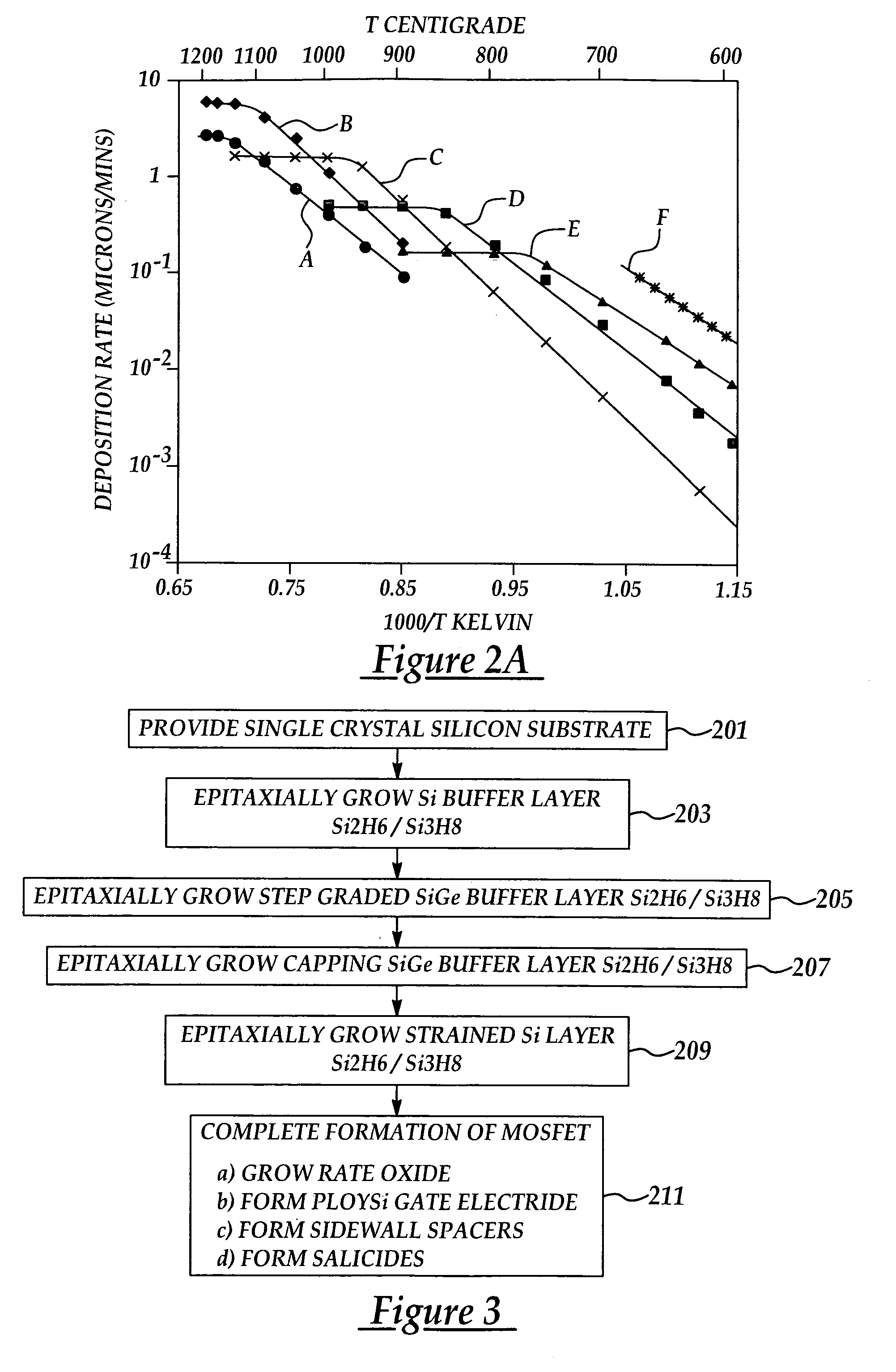Method for producing high throughput strained-Si channel MOSFETS
a technology of strained silicon surface channel and mosfet, which is applied in the direction of crystal growth process, polycrystalline material growth, chemically reactive gas, etc., can solve the problems of low throughput process, complex manufacturing process, cost prohibitive, etc., and achieve low defect density and improved wafer throughput.
- Summary
- Abstract
- Description
- Claims
- Application Information
AI Technical Summary
Benefits of technology
Problems solved by technology
Method used
Image
Examples
Embodiment Construction
[0014]Although the method of the present invention is explained with reference to a particular strained-Si channel N-MOFSET device, it will be appreciated that the method of the present invention may be applied to the formation of P-MOFSET devices as well. In addition, although an exemplary strained-Si channel multi-layered device is presented as an exemplary implementation and embodiment of the invention it will be appreciated that the method of the present invention may be advantageously used to increase a deposition rate and thereby decrease a process cycle time to increase a wafer throughput in the formation of any strained-Si layer device.
[0015]Referring to FIGS. 1A–1E, in an exemplary embodiment of the method of the present invention are shown cross-sectional schematic views of a portion of a semiconductor wafer at stages in production of an exemplary strained-Si channel N-MOFSET device.
[0016]Referring to FIG. 1A, a substrate (silicon wafer) 12 formed of single crystalline sil...
PUM
| Property | Measurement | Unit |
|---|---|---|
| temperature | aaaaa | aaaaa |
| temperature | aaaaa | aaaaa |
| temperature | aaaaa | aaaaa |
Abstract
Description
Claims
Application Information
 Login to View More
Login to View More - R&D
- Intellectual Property
- Life Sciences
- Materials
- Tech Scout
- Unparalleled Data Quality
- Higher Quality Content
- 60% Fewer Hallucinations
Browse by: Latest US Patents, China's latest patents, Technical Efficacy Thesaurus, Application Domain, Technology Topic, Popular Technical Reports.
© 2025 PatSnap. All rights reserved.Legal|Privacy policy|Modern Slavery Act Transparency Statement|Sitemap|About US| Contact US: help@patsnap.com



